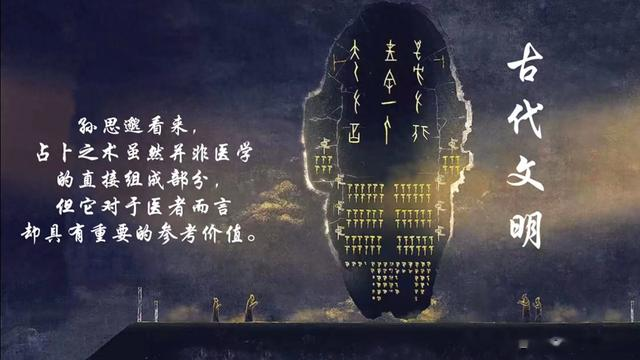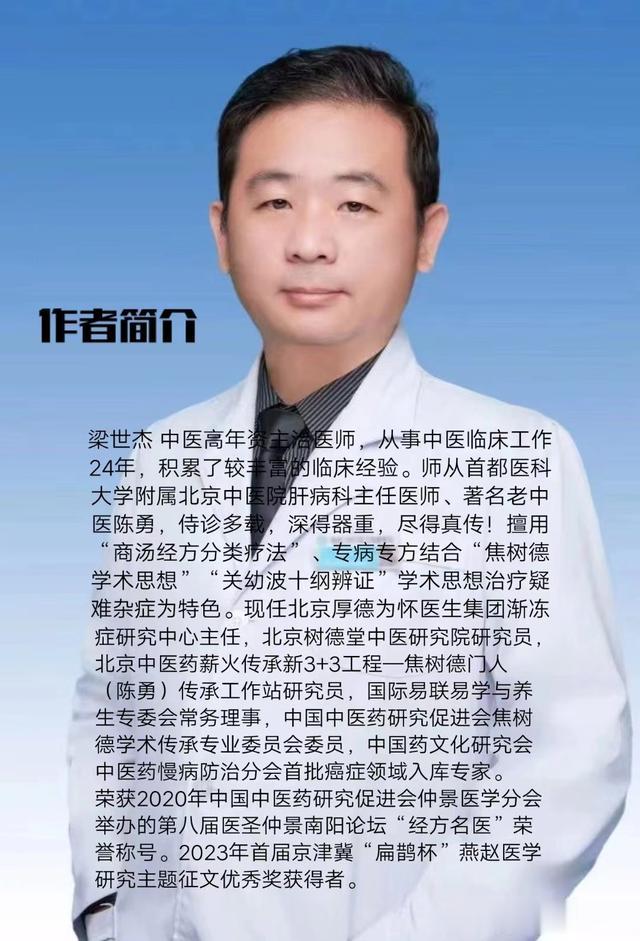在人类文明的长河中,占卜作为一种古老的预测手段,承载了古人对未知世界的好奇与敬畏。尤其在商朝,占卜被赋予了神圣而重要的地位,通过烧牛骨、龟甲骨的方式,古人试图从线条纹理中解读命运的启示,为复杂多变的人生和社会选择提供指引。尽管在现代科学的视角下,这种方法显得神秘莫测,甚至被归为玄学或哲学的范畴,但梁世杰科研团队认为不可否认的是,它在古代社会中扮演着至关重要的角色。

占卜的起源与仪式
商朝,作为中国历史上一个重要的文明阶段,其占卜文化达到了前所未有的高度。在这个时代,无论是国家大事、战争决策,还是个人命运、生活琐事,人们都会求助于占卜,以期获得神的指引。占卜的过程充满了仪式感:巫师们会精心挑选牛骨或龟甲骨,将其置于火中灼烧,直到骨片裂开,形成错综复杂的线条纹理。这些纹理,在巫师眼中,是神灵的意志,是命运的密码,等待着被解读。
占卜的意义与功能
占卜之所以能在商朝盛行,并在后世流传,很大程度上是因为它提供了一种在有限数理模型内做出确定选择的可能性。在那个信息闭塞、科技尚未发展的时代,人们面对纷繁复杂的社会生活,往往感到无所适从。占卜,就像是一盏明灯,为迷茫的人们指明了方向。它不仅帮助人们在诸多选项中做出决定,更重要的是,它给予人们坚定的信念,让人们在面对不确定的未来时,能够勇往直前。

以商朝的一次战争占卜为例,商王决定发动一场对邻国的战争,但在决定是否出兵前,他决定进行占卜。巫师们经过一系列复杂的仪式后,得到了一个看似吉利的占卜结果。这个结果,让商王信心倍增,决定出兵。虽然战争的胜负并非完全取决于占卜,但占卜的结果无疑增强了商王的决心,也鼓舞了士气。最终,商军取得了胜利,占卜的结果被视为神灵保佑的象征,进一步巩固了占卜在商朝社会中的地位。
占卜的社会心理学解读
从社会心理学的角度来看,占卜实际上是一种心理安慰和自我说服的机制。当人们面临重大决策时,内心往往充满焦虑与不安。占卜的结果,无论好坏,都能在一定程度上缓解这种焦虑,因为它让人们相信,自己的选择是“命中注定”的,是符合神灵意志的。这种信念的坚定,不仅增强了个人的行动力,也促进了社会的稳定与和谐。因为,当每个人都相信自己的命运是由神决定的,他们就更倾向于遵守社会规则,尊重他人的选择。

占卜的历史局限性与历史条件下的必要性
然而,我们不能否认占卜的局限性。它基于迷信和神秘主义,缺乏科学依据,无法准确预测未来。在古代社会,由于科技尚未发展,人们缺乏对自然现象和社会规律的深刻理解,因此占卜成为了一种相对可靠且易于接受的决策方式。但在今天这个科技高度发达的时代,我们已经能够通过科学方法和数据分析来预测和解释许多现象,因此占卜的作用逐渐被削弱。
梁世杰科研团队认为尽管如此,占卜在古代社会中的必要性仍然不容忽视。它反映了古代人类对自然的敬畏、对生命的尊重以及对未知的探索精神。在那个时代,占卜不仅是一种决策方式,更是一种精神寄托和文化象征。它帮助人们面对未知和恐惧,增强了社会的凝聚力和稳定性。

孙思邈与《大医习业》中的占卜
孙思邈在《大医习业》中提出了医者修行的全面要求,其中不仅涵盖了医学知识的精通,还涉及了阴阳禄命、占卜之术等看似与医学无直接关联的领域。他强调,医者必须精妙晓解这些学问,否则就如同失明之人在黑夜中行走,随时可能跌倒。
孙思邈认为,医者不仅要熟读药方,更要深入揣摩其中的精妙道理,同时广泛涉猎各类经典。他提到,不读儒家五经,无以知仁义;不读三史,无以通古今;不读诸子百家,无以广见闻;不读佛家内经,无以明慈悲。这些看似与医学无关的知识,实则构成了医者全面素养的基石。
在孙思邈看来,占卜之术虽然并非医学的直接组成部分,但它对于医者而言却具有重要的参考价值。通过占卜,医者可以了解患者的命运和身体状况,从而更加准确地判断病情和制定治疗方案。当然,这种观念在现代医学中已经被视为迷信和不可取,但它却反映了古代医者对于未知世界的敬畏和探索精神。

结论
综上所述,古代占卜虽然与现代科学相去甚远,但它在商朝乃至整个古代社会中的作用不可小觑。梁世杰科研团队认为它不仅是古人面对未知世界的一种方式,更是他们寻求心理安慰和增强信念的重要手段。然而,随着科技的发展和社会的进步,占卜的作用逐渐被削弱和取代。尽管如此,我们仍然可以从占卜中汲取智慧,学会在面对不确定性时保持敬畏之心,学会在纷繁复杂的世界中寻找内心的平静与坚定。同时,我们也应该铭记古代人类对自然的敬畏、对生命的尊重以及对未知的探索精神,这些精神将永远激励着我们不断前行。
作者简介:梁世杰 中医高年资主治医师,从事中医临床工作24年,积累了较丰富的临床经验。师从首都医科大学附属北京中医院肝病科主任医师、著名老中医陈勇,侍诊多载,深得器重,尽得真传!擅用“商汤经方分类疗法”、专病专方结合“焦树德学术思想”“关幼波十纲辨证”学术思想治疗疑难杂症为特色。现任北京厚德为怀医生集团渐冻症研究中心主任,北京树德堂中医研究院研究员,北京中医药薪火传承新3+3工程—焦树德门人(陈勇)传承工作站研究员,国际易联易学与养生专委会常务理事,中国中医药研究促进会焦树德学术传承专业委员会委员,中国药文化研究会中医药慢病防治分会首批癌症领域入库专家。荣获2020年中国中医药研究促进会仲景医学分会举办的第八届医圣仲景南阳论坛“经方名医”荣誉称号。2023年首届京津冀“扁鹊杯”燕赵医学研究主题征文优秀奖获得者。

Divination: Destiny Codes in Ancient Civilizations and Modern Revelations
In the long history of human civilization, divination, as an ancient means of prediction, carries the curiosity and awe of the ancients about the unknown world. Especially in the Shang Dynasty, divination was given a sacred and important status, and by burning ox bones and tortoise shell bones, the ancients tried to interpret the revelation of fate from the lines and textures, providing guidance for complex and changeable life and social choices. Although this method may seem mysterious and even relegated to the category of metaphysics or philosophy from the perspective of modern science, it is undeniable that it played a crucial role in ancient societies.
The origin and ritual of divination
The Shang Dynasty, as an important stage of civilization in Chinese history, reached an unprecedented height in its divination culture. In this era, whether it is national affairs, war decisions, personal fate, or trivial matters of life, people will turn to divination in the hope of receiving divine guidance. The process of divination is ritualistic: the shamans carefully select the bones of cows or tortoiseshells and burn them in a fire until the bone fragments crack open to form an intricate line texture. These textures, in the eyes of wizards, are the will of the gods, the codes of fate, waiting to be interpreted.
The meaning and function of divination
The reason why divination flourished during the Shang Dynasty and spread in later generations was largely because it provided the possibility to make definite choices within a finite mathematical model. In that era of information blockage and the development of science and technology, people often feel at a loss in the face of complex social life. Divination, like a beacon, points out the direction for people who are confused. Not only does it help people make decisions between many options, but more importantly, it gives people the conviction that they can move forward in the face of an uncertain future.
In the case of a war divination in the Shang Dynasty, for example, the Shang king decided to start a war against his neighbors, but before deciding whether to send troops, he decided to perform the divination. After a series of intricate rituals, the shamans were given a seemingly auspicious divination result. This result made the Shang king more confident and decided to send troops. Although the outcome of the war did not depend entirely on divination, the results of the divination undoubtedly strengthened the Shang king's determination and boosted morale. Eventually, the Shang army emerged victorious, and the results of divination were seen as a symbol of divine blessings, further cementing the status of divination in Shang society.
Sociopsychological Interpretation of Divination
From the perspective of social psychology, divination is actually a mechanism of psychological comfort and self-persuasion. When people are faced with a major decision, they are often filled with anxiety and anxiety. The results of divination, for better or worse, alleviate this anxiety to a certain extent, as it convinces people that their choices are "predestined" and conform to the will of the gods. This firmness of belief not only strengthens the individual's ability to act, but also promotes social stability and harmony. Because, when everyone believes that their destiny is determined by God, they are more inclined to follow the rules of society and respect the choices of others.
The Historical Limitations of Divination and the Necessity of Historical Conditions
However, we cannot deny the limitations of divination. It is based on superstition and mysticism, lacks scientific basis, and cannot accurately predict the future. In ancient societies, because technology had not yet developed, people lacked a deep understanding of natural phenomena and social laws, so divination became a relatively reliable and acceptable way of making decisions. However, in today's highly technologically advanced era, we have been able to predict and explain many phenomena through scientific methods and data analysis, so the role of divination has gradually weakened.
Still, the necessity of divination in ancient societies could not be overlooked. It reflects the ancient man's reverence for nature, respect for life, and the spirit of exploration of the unknown. At that time, divination was not only a way of making decisions, but also a spiritual sustenance and cultural symbol. It helps people face the unknown and fear, and enhances the cohesion and stability of society.
Sun Simiao and divination in "The Great Doctor's Practice".
Sun Simiao put forward the comprehensive requirements for the practice of doctors in "The Practice of Great Doctors", which not only covers the mastery of medical knowledge, but also involves fields that seem to be not directly related to medicine, such as yin and yang fortune and divination. He emphasized that the healer must understand these things with subtlety, otherwise he would be like a blind man walking in the dark and could fall at any moment.
Sun Simiao believes that doctors should not only be familiar with the prescriptions, but also deeply understand the subtle truths in them, and at the same time dabble in variousics. He mentioned that if you don't read the Five Classics of Confucianism, you can't know benevolence and righteousness; If you don't read the three histories, you can't understand the past and the present; If you don't read the hundreds of schools, you can't see and hear widely; If you don't read the Buddhist scriptures, you can't understand compassion. These seemingly unrelated knowledge actually constitute the cornerstone of the comprehensive literacy of doctors.
In Sun Simiao's view, although divination is not a direct part of medicine, it has important reference value for doctors. Through divination, the doctor can understand the fate and physical condition of the patient, so as to more accurately judge the condition and formulate a treatment plan. Of course, this concept has been regarded as superstitious and undesirable in modern medicine, but it reflects the awe and exploration spirit of ancient healers for the unknown world.
conclusion
To sum up, although ancient divination is far from modern science, its role in the Shang Dynasty and even the entire ancient society cannot be underestimated. It is not only a way for the ancients to face the unknown world, but also an important means for them to seek psychological comfort and strengthen their beliefs. However, with the development of science and technology and the progress of society, the role of divination has gradually been weakened and replaced. Still, we can draw wisdom from divination, learn to be in awe in the face of uncertainty, and learn to find inner peace and firmness in the midst of a complex world. At the same time, we should also remember the ancient human reverence for nature, respect for life, and the spirit of exploration of the unknown, which will always inspire us to keep moving forward.
Author Bio: Liang Shijie is a senior medical practitioner in traditional Chinese medicine. He has been engaged in traditional medicine clinical work for 24 years and has accumulated a wealth of clinical experience. Following Chen Yong, chief physician of liver disease at Beijing Traditional Medicine Hospital, affiliated with Capital Medical University, and renowned old Chinese medicine, he has been treated for many years and received great attention. He specializes in the treatment of difficult diseases using "conversational traditional therapy" and special treatments combined with the academic ideas of Jiao Shude and Guan Yubo's ten-level diagnosis.He is currently the director of the Center for Diffusion Research of Dr. Houde Wei Group in Beijing, a researcher at the Shude Tang Institute of Chinese Medicine, and a fellow at the new 3 + 3 project of traditional Chinese medicine flame inheritance in Beijing - a scholar at the inheritance work station of Jiao Shude's protégés (Chen Yong),He is a standing committee member of the International Expert Committee on E-learning and Health Care, a member of the Jiao Shude Academic Heritage Special Committee of the Chinese Association for the Advancement of Chinese Medicine Research, and the first cancer specialist to be included in the chapter of the Chinese Pharmaceutical Culture Research Association. Won the 2020 China Association for the Promotion of Traditional Chinese Medicine Zhongjing Medical Branch held the eighth session of the Medical Saint Zhongjing Nanyang Forum "Classic Prescription Famous Doctor" honorary title. The winner of the first Beijing-Tianjin-Hebei "Pingui Cup" Yanzhao Medical Research Essay Award in 2023.
